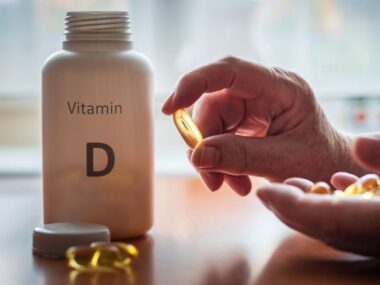Intestinal inflammation and typical ulcerative colitis symptoms may indicate nutritional deficiencies in people with ulcerative colitis (UC).
Blood loss, diarrhea, and even some medications used to treat this inflammatory bowel disease (IBD) can all increase the risk of nutritional insufficiency. Other factors that can do the same are problems with how your body absorbs nutrients and blood loss.
It is feasible to maintain appropriate levels of key nutrients with the right diet and supplements. Here are six of the most prevalent dietary deficits linked to ulcerative colitis, along with recommendations for how to treat them.
1. Iron Helps Fight Fatigue
In persons with inflammatory bowel disease, iron deficiency is very common. Approximately 20% of individuals have anemia. A study that was published in the February 2021 issue of the journal Nutrients found that another 37% of people have iron deficiency that is not anemia. This deficiency could be brought on by some ulcerative colitis medications, such as cholestyramine, or it could be brought on by blood loss through bloody diarrhea or internal colon ulcerations.
According to research published in July 2021 in Frontiers in Medicine, every 6 to 12 months for patients in remission and at least every 3 months for those with ongoing inflammation, all patients with IBD should be evaluated for anemia.
As strange as it may sound, David T. Rubin, MD, the Joseph B. Kirsner Professor of Medicine and the chief of gastroenterology, hepatology, and nutrition at UChicago Medicine in Illinois, explains that iron deficiency symptoms include weariness, pale complexion, and a strong desire for ice or dirt.
Dr. Rubin claims that while spinach was Popeye’s miracle cure, it is insufficient on its own to address iron deficiency. Although taking iron supplements may help some persons with ulcerative colitis, its effectiveness in those with non-anemic iron shortage has not been established. According to advice published in 2018 in Therapeutic Advances in Gastroenterology, intravenous iron infusions are an additional choice that are more efficient at replacing iron stores, operate faster and more effectively than oral supplements, and have less side effects.
Only very rarely are blood transfusions used, Rubin says. Once your iron stores are back to normal, eating an iron-rich diet with foods like lean meats and cooked leafy greens can help keep your iron at a healthy level.
2. B Vitamins Can Boost Energy and Memory
According to a study published in February 2021 in Nutrients, people with ulcerative colitis may have trouble absorbing folate, also known as folic acid or vitamin B9, and other B vitamins, particularly vitamin B12, which is essential for good cell growth and osteoporosis prevention. An earlier study indicated that people with IBD often had lower folate levels than healthy patients. The study was published in Nutrients in April 2017.
Only one section of the small intestine, the ileum, which connects to the colon just before, is where vitamin B12 is actually absorbed, according to King. Some drugs, including cholestyramine and sulfasalazine, can impede the absorption of B12 in this region and interfere with the absorption of folate as well.
According to MedlinePlus, symptoms of a vitamin B shortage include fatigue, weakness, mood swings, and tingling in the fingers and toes. Additionally, a study that was published in Cureus suggests that a vitamin B12 deficiency may result in memory issues. Folate and vitamin B12 deficits can be corrected with supplements after being identified by a blood test. However, a B12 prescription supplement or injections of the vitamin may be required to maintain a healthy level if you take a medicine that prevents vitamin B12 absorption.
Aim to consume a diet high in sources of B vitamins and folate, such as meat, poultry, and eggs, in addition to treatment to maintain healthy levels.
3. Calcium and Vitamin D Keep Bones Strong
Kristi L. King, MPH, RD, a senior pediatric dietitian at Texas Children’s Hospital and a clinical instructor at the Baylor College of Medicine in Houston, says that low stores of calcium and vitamin D are the main vitamin and mineral deficiencies in patients with ulcerative colitis. When you have this condition, “the intestines and colon don’t absorb nutrients in the same way they do for someone without the disease,” she notes, adding that many drugs commonly prescribed to treat colitis, such as prednisone, can also interfere with the absorption of calcium and vitamin D when used for prolonged periods of time. Additionally, losing calcium and vitamin D will deplete your bone density and put you at risk of osteoporosis. Up to 60 percent of people with inflammatory bowel disease have lower-than-average bone density, according to the Crohn’s and Colitis Foundation.
You may not have any noticeable symptoms, but your gastroenterologist should regularly check for these deficiencies as part of ulcerative colitis treatment, King says. Over-the-counter supplements can help restore healthy levels. Making some changes to your diet will help, too.
Dairy products are rich sources for both calcium and vitamin D, but according to a study published in the journal Nutrients, many people with UC restrict dairy from their diets after their diagnosis thinking that dairy will trigger symptoms. If you’re sensitive to dairy, grab a glass of soy or rice milk that’s fortified with calcium and vitamin D instead. You can also increase your leafy green vegetables (cooked to minimize bowel irritation), which are rich in calcium.
4. Magnesium Can Affect Your Muscles and Mood
According to the Harvard School of Public Health, magnesium has a role in preventing bone loss because our bones contain more than half of the body’s magnesium reserves. However, since the majority of the mineral is absorbed in the ileum, the largest region of the small intestine, which is frequently impacted by the disease, deficiency is a typical problem for those with UC. According to the NIH, prolonged diarrhea in digestive problems is also linked to magnesium depletion. Muscle twitching, numbness, tingling, and mood swings are signs of a magnesium deficiency.
If you can stomach it, consume more foods high in magnesium, such as spinach, creamy peanut butter, and seafood like salmon or halibut. Oral supplements may also be necessary to correct this deficit. Greek yogurt is a great choice because dairy products are a great source of dietary magnesium. Nuts and dried fruits, which are frequently found to be high in magnesium, could not be as readily absorbed. Due to the possibility of diarrhea from too much magnesium, King advises speaking with a trained nutritionist or physician.
5. Potassium Helps Relieve Muscle Cramps
In UC patients, potassium may help to reduce inflammation. According to a 2017 study that appeared in Scientific Reports, people with active UC exhibited lower urine potassium levels than healthy controls. In addition, researchers discovered that elevated potassium levels decreased the activity of inflammatory cells in a subsequent laboratory investigation that focused on inflammatory cells typical of UC patients. Although more research is needed to understand potassium’s clinical applications, it is already well recognized that prednisone use, persistent UC-related vomiting, and diarrhea can cause potassium deficiencies.
King says potassium deficiency comes into play with UC because the colon is the final place where potassium is absorbed in the body. “The colon actually reabsorbs potassium, and it goes through the bloodstream that way,” she says.
Muscle cramps, an erratic heartbeat, lightheadedness, and fainting are some signs of this deficiency. According to King, a potassium deficiency may typically be treated by eating a diet rich in foods that contain potassium, such as bananas, cooked leafy green vegetables, and potatoes. According to the Office of Dietary Supplements at the National Institutes of Health (NIH), taking too much potassium through an over-the-counter supplement could result in fatal heart rhythms. Before starting any supplements, discuss them with your doctor.





